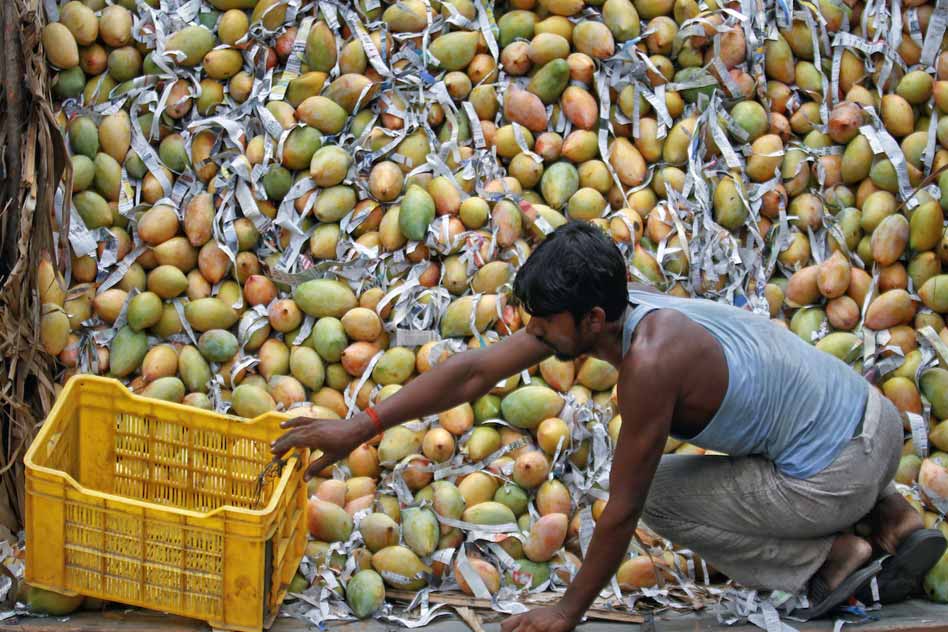The video shows how a box of mangoes, meant to be exported from the Karippur Airport in Kozhikode, Kerala, explodes after food inspectors set it on fire. The explosion is caused by small packets of calcium carbide inserted amidst the mangoes to make them ripen faster, which possess explosive properties.
What is Calcium carbide and What is it’s industrial use?
Calcium carbide (CaC2) is a chemical compound used in the manufacture of acetylene gas, generation of acetylene in carbide lamps and manufacture of chemicals for fertiliser and in steelmaking. It is also used for making toy cannons and naval flares thanks to its explosive properties.
Why Calcium Carbide is used to ripen fruits?
Calcium carbide has been banned under PFA Rules, 1955 and also under Food Safety and Standards (prohibition and Restriction on Sales) Regulations, 2011. When Calcium Carbide reacts with water it emits acetylene gas which is similar to the ethylene gas produced by plants to ripen its fruits.
What adverse effect artificially ripened fruits can cause to our health?
The trouble with fruit ripened artificially is the arsenic and phosphorous hydride created by Calcium carbide. CaC2 has cancer causing properties and could initially lead to vomiting, diarrhoea with blood and pain in the chest with other symptoms. And this is just the beginning.
What are the best practices?
To reduce the harmful effects of artificially ripened fruit, it is better to wash the fruits for many minutes so the chemical traces are reduced. Cut fruits instead of consuming them directly and get rid of the peel before you do so.











